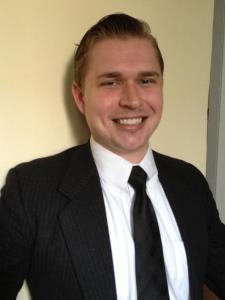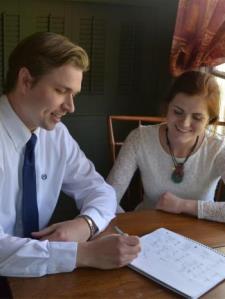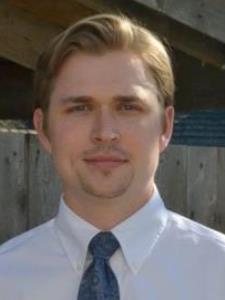

















Featured Review:
Super smart and engaging tutor
Wendy, 9 lessons with DanielDaniel has helped our children with science and math topics as well as prep for standardized tests. He is super smart and efficient, gave them substantive knowledge, and confidence.
Since becoming a full time tutor ten years ago, I've read more than 50 books to become a better tutor and implemented the results of more than 27 of them into my instruction. I have developed a unique and valuable tutoring approach that requires parent participation and student buy-in and effort.
Parents must begin by making it clear the student is the only one responsible for their schoolwork and test grades and then grant them autonomy and control to do this work as they see fit. Then,...
Loading...
Daniel has provided examples of their subject expertise by answering 1 question submitted by students on Wyzant’s Ask an Expert.
Super smart and engaging tutor
Daniel has helped our children with science and math topics as well as prep for standardized tests. He is super smart and efficient, gave them substantive knowledge, and confidence.
Wendy, 9 lessons with DanielTutor responded:Thank you so much for your kind words. I very much enjoy working with you and your family.
Masterful and skillful instructor
Daniel is great knowledgeable, patient abd detail oriented tutor. He is a true education professional who tries to elicit the best in his students . He has his own pedagogical approach that takes into consideration personality traits of his students. My daughter is becoming more comfortable with the college level calculus that he has been teaching. We are lucky she can have that type of support in college.
Nicole, 9 lessons with Daniel
Exceptional tutor
Daniel is tutoring our 16 yo for the ACT exam. We couldn’t be more pleased. Daniel is very friendly and professional. Our kid is less than enthused about the exam but Daniel makes sessions interesting and our kid actually looks forward to the sessions. Daniel is a fantastic communicator with our kid and us, the parents. We are more than satisfied with his work.
Alena, 8 lessons with Daniel
Great teacher, very patient.
Daniel S has helped my son a lot after only 2 sessions. We appreciate his tutoring considerable, and look forward to future sessions.
MARK, 10 lessons with Daniel
Wonderful, Attentive and Very Patient
Daniel is now tutoring all three of our girls and each in need of different subject. Daniel has given each of them the confidence and the tools to learn material in a very comfortable situation. Daughters ACT scores have increased due to his teaching and ability to reach in and connect with the girls strength and allow them to shine through.
Rebecca, 8 lessons with Daniel
Incredible energy and enthusiasm!
Daniel helped our son review various geometry concepts for a make-up exam. His enthusiasm was infectious, even for someone who has not pondered these issues in decades but was listening in from the next room!
Anonymous, 4 lessons with Daniel
Very knowledgeable and encouraging tutor
Daniel has been tutoring my daughter in pre calculus and has helped her to greatly increase her understanding and grade in the class. He arrives on time, prepared and ready to get the job done all with a smile on his face.
Sarah, 12 lessons with DanielTutor responded:Thank you for the lovely feedback! It's a pleasure working with you both and your daughter has already improved substantially. See you soon!
Extraordinary! Calculus Genius! Gifted Teacher! Very Responsive!
Daniel knows how to differentiate instruction for all kind of learners, make difficult material understandable and produce amazing results! My son was enrolled in a challenging, intensive summer college calculus class, with no pre-calc background. His first test grade was below the class average. After one tutoring session, he prepared my son so well that he received the highest grade in his class. Daniel is not only brilliant, he's also energetic, relatable and great at inspiring a student to do his/her best! He is a true find!
Elizabeth , 1 lesson with DanielTutor responded:Oh my goodness, Thank you for the amazing feedback! Your son is a very gifted student and picked up material quickly and effectively to have succeeded so thoroughly, congratulations!
Highly knowledgeable and personable tutor!
Daniel is extremely knowledgeable in all areas of math and science. He is also very personable and relates very well to his students. We highly recommend him!
Elyse, 27 lessons with DanielTutor responded:Thank you very much for your appreciable review! It's a pleasure working with your student.
Great tutor-- dedicated, knowledgeable and responsive.
After my son's first session with Daniel, he immediately felt more confident about his ability to do well in Physics. Daniel gives great feedback and is extremely responsive and accommodating. I highly recommend him.
Mary, 5 lessons with DanielTutor responded:I am thrilled that your son felt such an immediate relief after our first tutorial. Thank you so much for your vote of confidence and your acclaim!